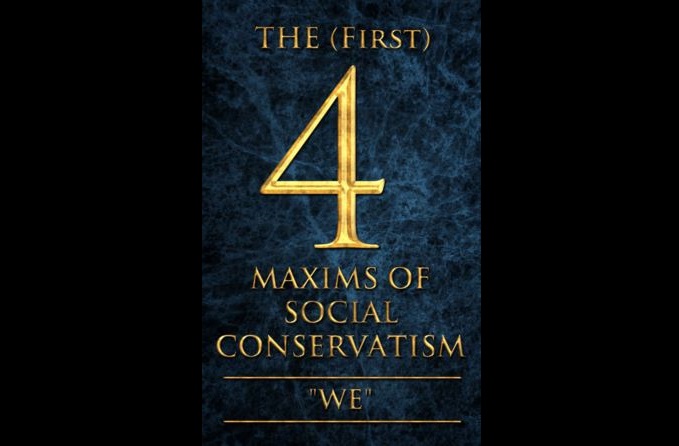Here is J.G. Maggio, author of The (First) 4 Maxims of Social Conservatism, writing at Illinois Review:
As the well-being of the family goes, so goes the well-being of the nation.
There seems to be a new trend emerging in “conservative movement” circles these days. You sometimes hear it expressed at political dinner parties or gatherings. A youngster in his 20s or 30s will declare, “I’m an economic conservative. A small-government conservative.” Then he smiles. “But I’m a liberal on social issues.” The subtle implication is clear. “With me you get the best of both worlds. I’m no socialist who wants to take your money. And just as good, I’m not an outdated, moralizer who judges how you live.”
There’s a recent book assigning a catchy name to certain adherents of this “economic conservative-social liberal” philosophy: The Conservatarian Manifesto, by the National Review’s Charles C.W. Cooke. The other adherents, of course, are libertarians – those followers of Ayn Rand and modern-day libertarian thinkers like David Boaz (Cato Institute). The premise of Conservatarians and libertarians? Social issues are not the most important issues. Live and let live. The social liberalism that began in the 1960s is here to stay and that’s no problem. Not as long as we have small government, low taxes, little regulation and a small national debt.
This may sound good to some – in theory. But here’s the problem. It doesn’t work in reality. The past few decades in the United States illustrate the story of why.
Conservative Political Activism since the Late 1960s
In the late 1960s, small-government conservatives in the U.S. started to become more heavily involved in politics at the federal level, shortly after President Lyndon Johnson had helped to cement his so-called “Great Society” into place. This conservative activism paid off in terms of political victories. In subsequent decades, small-government conservatives would garner substantial influence in the halls of government and in government decision-making. At the federal level alone, they were influential in electing presidents in 1968, 1972, 1980, 1984, 1988, 2000, and 2004. Additionally, the Republican Party has managed to control the U.S. Senate for 19 years since 1968 (1981-1987; 1995-2007; 2015-), and the U.S. House of Representatives for 18 years since ‘68 (1995-2009; 2011-).
Despite all the victories, however, small-government political activism hasn’t accomplished its central objectives. Not even close. A look at some hard facts tells as much.
Read more: Illinois Review

